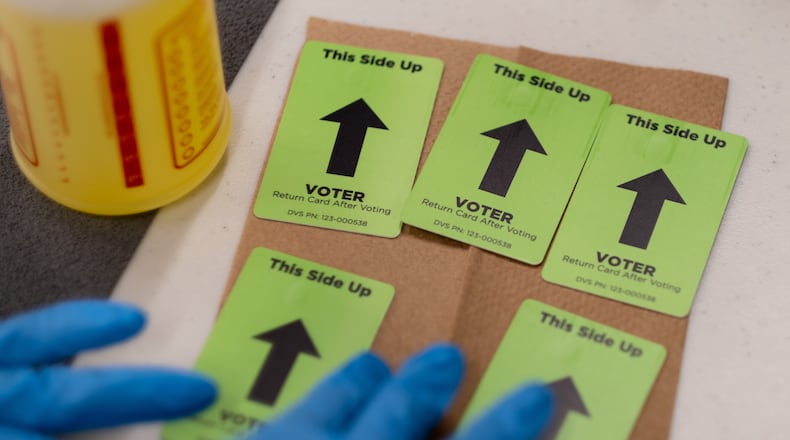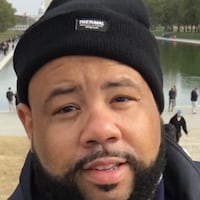Cobb County elections officials, amid pushback for moving a polling place used predominantly by Black voters to a police training facility, will reconsider the change.
In a 4-1 Monday vote, the Cobb County’s Board of Elections and Registration decided to revisit a decision made less than two month earlier. The five-member panel will hold a public hearing Oct. 11 and hold another vote on whether to return the polling site to Cooper Middle School from the Cobb County Police Academy just a few blocks away.
“We’re tasked with making sure that elections are free, impartial and accurate,” elections board Chairwoman Tori Silas said. “And I just did not believe that any facility where you know that there will be a police presence provided that.”
The site switch is currently set for Jan. 1. It would not affect elections in November.
The American Civil Liberties Union of Georgia was among those critical of the relocating the South Cobb polling site to a law enforcement training facility, fearing that the police presence could intimidate Black voters in particular from casting ballots.
More than 58% of the 5,234 registered voters assigned to the Austell precinct are African American, Cobb County election records show. Silas said she was unaware of any other voting location in the county that’s at a law enforcement-affiliated facility.
Local ACLU attorneys sent Cobb’s election board a letter Monday urging them to reverse course. Rahul Garabadu, an ALCU voting rights attorney, said the move could deter voters of color from “exercising their sacred right to vote.”
During Monday’s meeting, Garabadu said the move may violate federal voting laws because it could have an unintended consequence of suppressing votes. He added that moving the polling place could be confusing for voters, who will be facing new restrictions next year when Georgia’s statewide election reform laws go into effect.
“Why make things even more confusing for voters when we’re looking at an election cycle that will see so many changes to begin with,” he told the board.
The elections commission approved the move by a 3-2 vote during its July 19 meeting. The police training center is located at 2435 East-West Connector.
Board members Jessica Brooks, Steven Burning and Pat Gartland favored the move during the initial vote. Silas and elections commissioner Jennifer Mosbacher voted against it.
Gartland was unmoved by the recent criticism. He described the police academy as a “beautiful building” and said he didn’t believe voters would be intimidated by police on the premises.
“I don’t think people are scared to come in there,” he said. “I noticed the people there getting their driver’s licenses, they weren’t worried about all the police.”
Janine Eveler, Cobb’s elections director, said the county has tried to shift its polling locations away from schools in recent years because they pose security problems and have limited accessibility. Cobb once had 63 polls inside schools, she said. Now there are just 29 such locations.
According to Eveler, the county has cut down on the school locations by shifting voting sites to churches and more government facilities like the police academy. She cautioned the board about moving the voting site back to Cobb Middle School.
But Silas said she’d received several letters, phone calls and emails from residents, state lawmakers and other members of the community who expressed concerns about changing the polling location. She said that compelled her to take the “unprecedented” step of bringing the resolution back before the board to reconsider.
Brooks and Bruning both seemed poised to flip their votes from the July decision.
“If we hear people that have said they would be dealing with intimidation, I believe them,” Bruning said. “I have no reason to question their honesty. And I don’t believe we should approve any location as a precinct voting place that might result in somebody not voting.”
About the Author
Keep Reading
The Latest
Featured



